Looking Back at the Neuchâtel Graduate Conference 2022

The fifth edition of the Neuchâtel Graduate Conference on the theme of “Tensions in Migration and Mobility” took place from 7 to 8 July at the University of Neuchâtel and online. The conference provided a stimulating and informal context where researchers from various institutions and interdisciplinary backgrounds could exchange ideas, get expert feedback, establish networks, and initiate collaborative work.
The conference came to fruition through the successful endeavor of its organizing committee, consisting of nccr – on the move members, Leslie Ader, Mia Gandenberger, Ihssane Otmani, Aurélie Pont, Livia Tomas and Robin Stünzi (chair). With the help of some other members, they designed the content of the working groups, selected the applications, identified the participants for the panels, organized side activities, chaired sessions, and selected candidates for the Best Paper Award.
The large number of applications, from over 90 young researchers based in 30 countries, made the task of selecting the successful proposals demanding. Nevertheless, the selection committee managed to narrow down the number to 48 accepted proposals, divided into 6 working groups falling under the same overarching theme of “Tensions in Migration and Mobility.”
These were: 1) Policy and Governance Tensions in the Fields of Migration and Mobility; 2) Understanding Citizenship under Tension; 3) Tensions Developed in a Transnational Social World 4) Between Access and Exclusion: Tensions in Attitudes and Preferences in the Attribution of Rights to Migrants 5) Tensions in Refugees’ and Migrants’ Integration 6) Current and Future Tensions in the Field of Migration and Mobility.
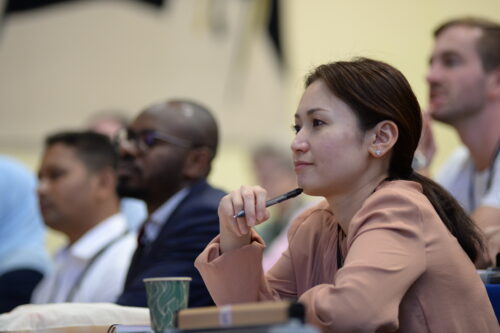
Klaudia Wegschaider, from the University of Oxford, received the Best Paper Award for her article: “The Effect of Simultaneous Popular Votes: The Case of Immigrant Enfranchisement.” The members of the Jury wanted to reward a well-structured paper, tackling an important issue and drawing on rich and diverse data to provide robust and compelling results.
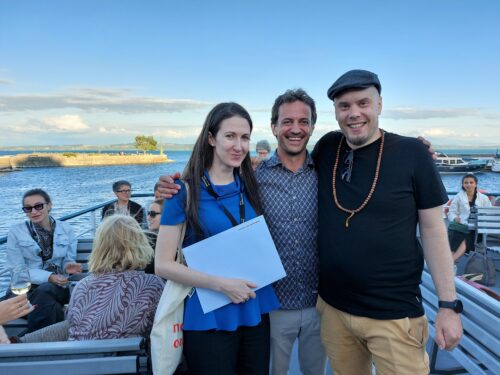 During the Conference, the participants had the opportunity to listen to one of the most prominent theorists in the field of migration studies, Adrian Favell, who delivered a keynote address entitled “The Integration Nation: Towards a New Critical Political Demography” based on his new book. The video of his keynote lecture can be viewed on our YouTube channel through this link.
During the Conference, the participants had the opportunity to listen to one of the most prominent theorists in the field of migration studies, Adrian Favell, who delivered a keynote address entitled “The Integration Nation: Towards a New Critical Political Demography” based on his new book. The video of his keynote lecture can be viewed on our YouTube channel through this link.
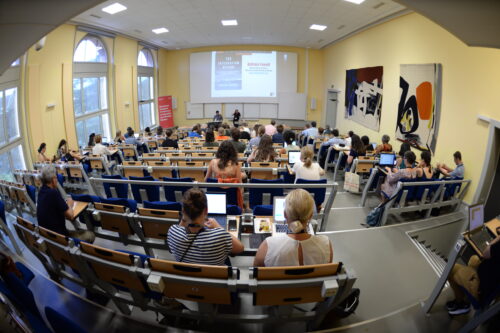
The 2022 Graduate Conference also included a panel on ethics in migration research, moderated by Matteo Gianni and featuring Libby Bishop, Tina Miller, Elodie Malbois and Didier Ruedin. The four scholars explored many pressing ethical issues in the field of migration and mobility studies, such as the treatment of participants, the use and sharing of qualitative and quantitative data, and the use of Big Data for research purposes.
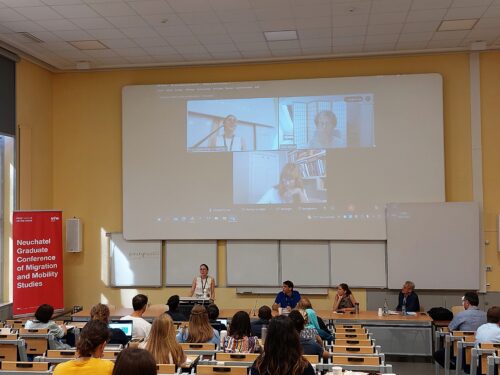
In addition to the traditional lectures and panels, we organized one speed-dating session on career opportunities. The participants had the opportunity to exchange with 11 professionals with different trajectories and positions in Swiss and international institutions to get an idea of what professional opportunities lie ahead in the field of migration, both in academia and outside of it.
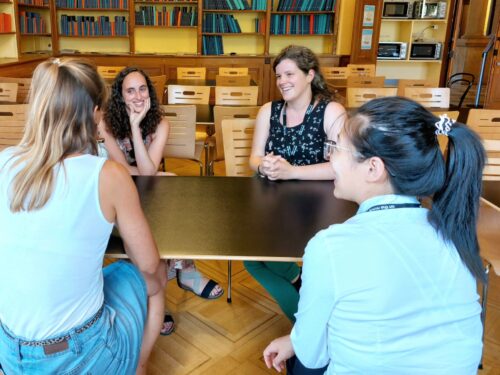
The feedback received from the participants was very positive. Participants greatly appreciated the working group format and the considerable amount of feedback they received from the mentors and assigned discussants. The relaxed collaborative atmosphere, the interactions and exchanges between junior and senior researchers, the interdisciplinarity, and the breadth of topics covered in the fields of migration and mobility studies were also noted.
On a more critical note, some of the participants regretted the technical issues with online presentations in the sessions and would have appreciated more opportunities to meet people from other working groups. Finally, we received useful recommendations for the organization of future editions, in particular as per the clarity and timeliness of the information to be sent to the presenters, mentors, discussants and chairs before the conference. A full report of the survey is available here.
The sixth edition of the conference will take place on 6 and 7 July 2023. For this edition, we will continue to experiment with the format of this event, while preserving its distinguishing features: the long time allocated for the papers, discussant and expert feedback, the collaborative atmosphere, as well as for the interdisciplinary and constructive exchange between junior and senior researchers.

